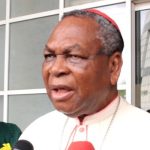
Growing up, I never felt masculine enough to be one of the guys. I didn’t know what it meant to be a man. No one had ever shown me how. I’d felt so inadequate in my own sense of masculinity that being around men often left me feeling uncomfortable and intimidated. Around women, I felt at ease. Around men, I felt as if I was some kind of alien on a foreign planet. My broken home life had left me underdeveloped in my masculinity, and deeply longing for the love and attention of a man.
Prior to my 20s, all my best friends had been women. Most of my childhood play dates were with girls. In junior high, I was bullied for my effeminate voice and mannerisms and sexually harassed by the boys at school. This further cemented that feeling that I wasn’t “man enough” to belong. It seemed as if all the other boys had become men, and I’d somehow been delayed in my masculine development. Inside, I felt like a little boy in a grown man’s body. They were all so manly and strong, and I was wimpy and weak. Thoroughly insecure, I desperately craved the affirmation from another man that I was, in fact, a real man.
During puberty, this crisis of masculinity fueled my secret homosexual desires. Through homosexuality, I thought I could satiate that desire to belong and find my masculine identity. Then something amazing happened. God began the process of healing my masculinity crisis and the subsequent gay desires I was suffering from in a way I would have never imagined. It wasn’t simply because I “prayed the gay away,” but rather, through the cultivation of godly male friendships for the first time in my life.
So many unbelievable things played a role in making me finally feel like I was a man, such as playing nerf gun wars in a house full of guys, another guy telling me I’d be a great husband one day, a friend from church saying he missed me and wanted to hang out, a buddy platonically telling me that he loved me, and more. What also began to happen in the midst of having guy friends was the genuine change of my inner man-boy’s frame of mind. The more I hung out with godly men, the more I felt my masculinity grow. My sense of self, which had always been internally wimpy and weak, began to feel manly and strong. Hanging out with women all the time never made me feel more masculine. Homosexuality certainly never made me feel a long-lasting sense of true manhood.
I’d grown up with such a low view of myself in relation to my own manhood, that when other men made me feel like I was worthy enough to hang out with, it began to obliterate the voice that said I wasn’t. To finally have guy friends not only include me, but to treat me like one of their own, was healing to my soul. When I saw myself as a wimpy man-boy, the men God brought into my life treated me like I was finally a worthy man. I was shocked. It felt like I was a little kid again, being picked first from the lineup to play ball. Not rejected, but chosen. My 20s were like reliving the childhood I’d never had, where I could finally just be “one of the guys” like I’d always longed to be. By connecting with men in a brotherly way, I found all those deep longings and insecurities, of which I’d tried to turn to homosexuality to satiate, eventually began to fade. As time passed, I found the desire to connect to men in a sinful way began to vanish and be replaced with a desire to connect with men in a properly platonic way. God was truly changing my heart.
Since homosexuality by its very nature was emasculating, it was scary to imagine confessing to another man that it was something I struggled with. Yet again, another reason to feel “not man enough.” One of the reasons I kept my struggle with gay desires a secret until the age of 24 was because I honestly thought that if other guys found out about my struggle, they would reject me. A group of men could all confess to one another that they each struggled with heterosexual lust, and although it was sinful and potentially embarrassing, it wouldn’t be as emasculating as confessing that you were a man who struggled with homosexual desires. In order to heal from my masculinity crisis, I had to learn how to fellowship properly with men. In order to fellowship properly with men, I had to be vulnerable with men. But the fear was that if other men truly saw what was inside of me, they would see me as the man-boy I thought I was, not the man that I wanted to be. It would be like junior high school all over again, and I would most certainly be rejected.
This lie, which kept me from telling anyone about my struggle for years, proved to be a total fabrication from the enemy. In fact, God repeatedly brought men into my life with whom I could be honest and open about my struggles and still be loved the same. I can’t put into words how healing it was to confess some of my scariest struggles and still have godly brothers continue to treat me like I was just one of the guys. To confess the sin that makes you the most ashamed and fearful and to have others continue to embrace you and not reject you has been the expressed reality of Christ’s love in my life.
In this vulnerable space of life sharing, I also found that all my guy friends, even if they hadn’t struggled with gay desires as I had, all struggled with sexual sin in some way, shape, or form. This was both strangely comforting and healing, in that it helped me see my struggles and sin in a new way. I wasn’t some “other kind of man,” because I specifically struggled with gay lust. Rather, we were all equally men, all equally born with a sin nature, and we all had our own unique struggles, of which we could all mutually support one another. Believe it or not, we actually had more in common as men than I’d ever been led to believe. As brothers, we were in this together. I would never have guessed that I would find some of my most meaningful bonds with men through mutually confessing our struggles to one another. After one men’s Bible study, where we’d all shared vulnerably about our unique struggles with sin, one of the guys came up to me afterward and said, “It feels like we are brothers now.” The inner monologue I’d believed for so long, that I was some sort of rare and exclusive sin struggler, couldn’t have been farther from the truth. We were all broken men, all trying to be the whole men Christ wanted us to be.
It’s been ten years since my first male best friend, and I still thank God for the male friends He has brought me and continues to bring me. Sometimes I still have moments where I have to pinch myself. Amidst fellowshipping with men, God has brought powerful healing into my childhood wounds, restored my masculine identity, made me a more confident man, and taught me how to properly relate to men as equal brothers in Christ. I would not be where I am today without the healing power of Christ and the amazing brothers He has brought into my life.
Taylor Simon Maxwell is the author of The Desire Tree. He is a student at Dallas Theological Seminar.
Novel: https://a.co/d/3uU5Seq
Twitter: https://x.com/TaylorSimonMax
Website: https://taylorsimonmaxwell.com








